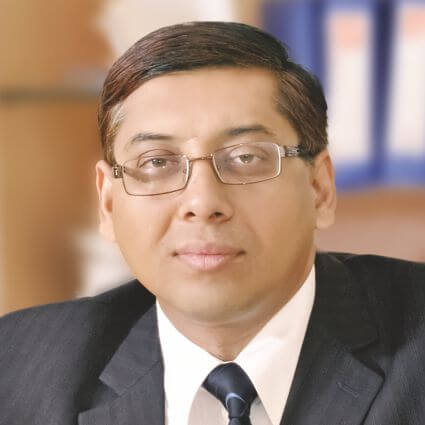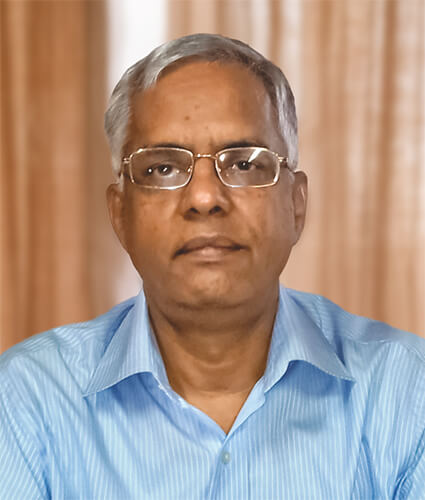
Sustainability is based on a simple principle; everything that we need for our survival and wellbeing depends, either directly or indirectly, on our natural environment. Sustainability creates and maintains the conditions under which humans and nature can exist in productive harmony, that permit fulfilling the social, economic and other requirements of present and future generations. Sustainability is important to making sure that we have and will continue to have, the water, materials, and resources to protect human health and our environment. But in the recent years with the rise of industrialization these resources are depleting and paper industry is considered to be one of the contributors in that.
Therefore the biggest question arises in front of the Indian Paper Industry is to address the challenge of growth v/s environmental sustainability. In this article we are sharing the steps taken by few paper companies on this front and plans to take up in future.

JK Paper Ltd.
JK Paper Limited is deriving its direction and business development from its Mission – “concern for environmental and social care”. In today’s world, there is a great challenge to have a balance between industrial development and sustenance of environment and natural resources and JK Paper has been successfully striking this balance. JK Paper’s philosophy has not been only to conserve resources but to recharge natural resources, be it forest, water.
JK Paper is recasting its Environmental, Social and Governance (ESG) Criteria to emerge as a significant player in the sustainability and environmental paradigm. Significant invest-ments have been made in up-scaling operations to become a front ranking Company on all the three parameters.
Expansion of the capacity from 2,90,000 tpa to 4,55,000 tpa is designed to create a state of the art sustainable manufacturing facility that uses significantly lower water and energy resources to produce superior quality products. Our manufacturing facility is equipped with Elementary Chlorine Free technology.
I must clarify that the Paper industry may not be made responsible for cutting trees to meet its raw material requirements. In fact, more trees, directly or indirectly, are planted by Paper industry than its need for raw material. I can say this with hard data with our farm forestry programme.
The Company has taken up social farm forestry as major environment re-generation activity. It has planted over 1,00,000 hectares in six states of India. This has enabled the Company to provide livelihood and income opportunities to a large number of farmers and tribal people. It has also helped to get carbon credits and access the Bio Carbon Fund of the World Bank. The grants have been distributed to over 1,400 small and marginal farmers. Our plantation programme has also enabled to generate the required green cover rather than destroying it.
Paper industry needs good quantity of water for its processing operations but using modern technology and process innovations we have been able to reduce the water consumption per unit of output produced over a period of time. Also, we have been able to recycle the water either in the process itself or treat the water so that it can be used for other purposes like irrigation etc. On net use basis, paper industry no longer consumes substantial quantity of water as it is generally believed.
A major theme in our core values is to take care of societal needs in our neighbouring community, be it improving living standards, medical and health care, cleanliness and environmental protection. The beneficiaries of our Adult Literacy program were further trained to set up micro-enterprises like poultry, phenyl making, goat rearing, book binding etc.
Close to 500 women in 40 Self Help Groups (SHGs) from 22 villages around our factory premises have benefitted from these programs. Our CSR initiatives have made positive changes in the all round development in the tribal belt, where we operate.
.

Naini Group Of Industries
Today, environment sustainability has become a big challenge, mainly due to callous approach of industry in this regard, paper industry being no exception. There is a need to understand and believe that economic growth and development can be achieved by focusing on sustainability of our environment.
We, at Naini have always been curious and concerned to protect our overall environment, whether it be river bodies, atmosphere, plants and animals, natural resources like water, coal & wood, or precious human resource. To start with, we added ‘environment’ to our tag line that reads “Ethically firm. Environmentally strong.” At plant level, we carry out any developmental, modification or expansion plan keeping sustainability of environment in mind.
Naini has taken lead in the past decade in implementation of environment-friendly technologies & processes. We are the pioneers to install a ‘Soda Recovery Plant’ in an agro-based kraft paper mill in 2003. Subsequently, CPCB made it mandatory for all agro-based paper mills to have ‘Soda Recovery Plant’. Both of our mills – Naini Papers Ltd. and Naini Tissues Ltd. have installed Oxygen Delignification (ODL) plants thereby reducing the overall consumption of chlorine in bleaching stage by 35%. This has helped in reduction of overall COD load and AOX in the effluent. Our agro-based paper mills, by their very nature, are environmentally sustainable to a great extent as they use only agricultural residue (bagasse & wheat straw) in place of wood for making paper. Lot of efforts has been done to recycle backwater and reduce consumption of fresh water, which is about 55 cu. mtr. per MT of paper and is a landmark in agro-based writing-printing paper mills today. We have invested a total of Rs. 7 crores in modernization of existing ETPs of both the group companies wherein we have replaced the existing surface aerators by more efficient diffused aerators and installed tertiary treatment system to reduce the color and COD/BOD of the treated effluent. All the steam boilers are using biomass as fuel in place of coal. We have recently installed a multi-fuel biomass boiler that can burn every type of bio-fuel.
.

ITC – PSPD
ITC being a responsible corporate, have been working on creating sustainable raw material sources for pulp and paper industry through farm and social forestry schemes. Today we are leading industry in plantation activity with over 1,45,000 hectares of land, most of it is degraded, cover with Eucalyptus and Subabul plantations. In addition we have also initiated WOW – Wealth Out of Waste program to source, segregate recyclable waste and put it back to the industry for recycling, in the process avoiding dependence on scarce natural resources. Started in April 2007 with a moderate collection of 100 MT of recyclable waste in a month, current WOW recyclable collections are touching over 4000 MT per month.
We are thus fully committed towards the sustainability of environment and are working tooth and nail to achieve the sobriquet of ‘environment friendly mill’.
.

Trident Limited
Trident is focused on generating economic prosperity for its stakeholders, while growing harmoniously with the community and environment. With compliance to international environmental standards, including highly coveted FSC certification, and use of ECF technology complimented by the state-of-the-art machinery, Trident manufactures high quality environment friendly and machine-friendly paper.
Realizing its responsibility towards environment, Trident has invested significantly in R&D and acquiring innovative technology for manufacturing premium quality paper out of wheat straw. Manufacturing paper from wheat straw not only helps in saving trees but also aids in preventing the harmful emission of pollutants in the air. Trident is one of the pioneers in introducing modern ECF technology (Elemental Chlorine Free) on wheat straw in India, which reduces adverse environmental impact. We have also been on the vanguardin terms of optimizing water and energy consumption, and have been amongst the leaders in the paper industry. Our state-of-the-art recovery plant enables generation of high-pressure steam from organic waste, which is further used to generate electricity during pulping process. With basic raw material available in the radius of 50 kms from the factory premises, Trident Paper has a low Carbon Footprint number.
As a part of sustainability initiatives, more than 1,50,000 trees are planted inside the Trident campus, which are using treated process water. We are further in the process of upgrading our technology & processes to achieve better results and to ensure that our business activities have minimal impact on the environement.
.

Yash Papers Ltd.
At Yash, we are wedded to the idea of sustainability. We breathe, live and grow with sustainability on our mind.
Sustainability, for us is a triple bottom line approach of People, Planet and Profits.
We invest heavily in people. We believe that our team is our life source. We build strongly on a culture that works on utilizing the genius in each person. The same is enabled by encouraging extreme transparency, having flat management structures, heavy focus on performance and providing lots of freedom to make mistakes and learn. We focus our energies on hiring well and then nurturing each individual towards their purpose.
We believe that people are our stakeholders and we nurture our relationships with our customers, vendors, investors and the local community. Our company works on improving lives by creating better education, sanitation and opportunities for employment in our neighboring villages.
Our entire business structure focuses on the planet. We make use of agricultural residue for our raw material. We make power through biomass. We recover our chemicals. We utilize our solid wastes and work continuously towards new technologies for the same. We consistently reduce our consumption of energy, steam and water. We plant trees for the future. We follow a zero garbage programme in the premises. The list just goes on and on.
We fundamentally create a business that provides sustainable and ecological packaging. We work with numerous research organizations across the world to find, develop and provide the world with better solutions. Our team works on a wide array of ideas in the domain and is confident of bringing many of these path-breaking technologies to light.
We remain aware that growth is possible only through performance and profits and our teams remain focused on costs and revenues. Each person in the organization is taught the language of finance and contributions and we are able to focus on the same as a team.
We are confident that results of this focus on sustainability will continue to show in the coming future.
.

Vice President – Commercial, Executive Director
Rainbow Papers Ltd.
We make various efforts to make our operations environmentally sustainable and for the same we had implemented various innovative ideas and approaches towards productive usage of by-products generated at various stages. Few of them are:
• We have installed brick manu-facturing plant at our works to consume the fly ash being generated as residue of power plant.
• We have installed board machine to consume the sludge within our premises.
• We also have installed fiber sheet plant to process the recovered fiber completely within our premises.
Besides, we strictly believe in zero discharge policy where we do not allow any kind of discharge from our factory.


